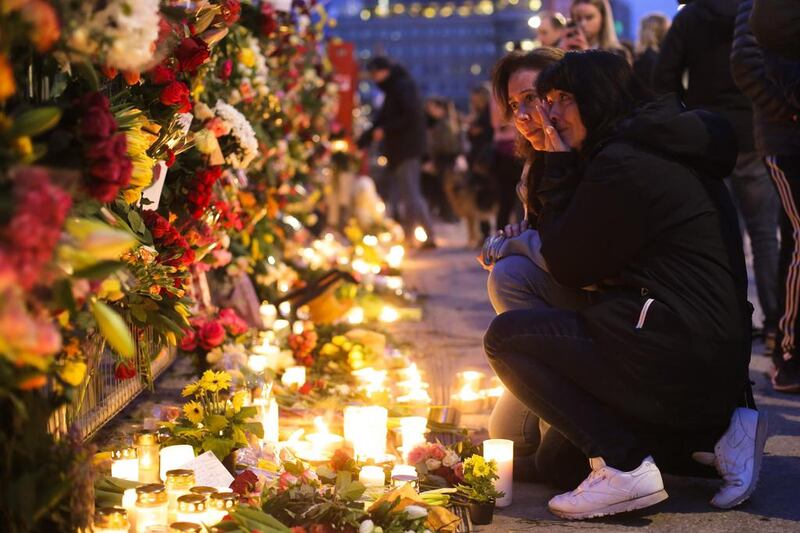A couple of weeks ago, during a short visit to London, I walked past the Houses of Parliament and Big Ben. I paused to look at a long line of bouquets placed by passers-by on the edge of the square, in tribute to those killed a few days earlier during the one-man terrorist attack on Westminster in which a policeman was stabbed to death and several pedestrians, three of whom were killed, had been mown down by the fanatic as he drove his car across Westminster Bridge.
As with last week's attack in Stockholm and another last July in the French city of Nice, quite apart from Sunday’s horrific attacks in Egypt, it was a reminder that the threats posed by terrorism are no longer confined to organised assaults with weapons or the hijacking of planes. A vehicle driven by a fanatic can also wreak havoc, killing and injuring innocent people going about their everyday business.
In each incident, as with the earlier terrorist attacks in Paris, the perpetrators were individuals who had been born or had spent much time in the countries concerned. Some were Muslim by heritage, though the man who carried out the London attack was not. All of them had been radicalised in Europe, through the internet, through mosques or in prison. Several had records as petty criminals. Western governments now recognise that the threat posed by adherents of the perverse and distorted interpretation of Islam represented by ISIL and Al Qaeda is not confined to those who may arrive in their countries with the specific intention of carrying out terrorist attacks but extends deep into their own multicultural societies.
Tackling that threat is not – and can never be – simply a matter of taking the relevant security precautions. However effective they may be, they can never identify every individual who may have become radicalised without an easily detectable footprint on the internet or a public profile through speeches or taking part in demonstrations. Hence the results we have now seen.
Nor can the response be effective if the whole of the Muslim communities in these countries are, unfairly, viewed with suspicion – not least because it is only through such communities that the alleged justification for such terrorism can be effectively countered.
Instead, while security precautions are, of course, necessary, there is an urgent need for a more wide-ranging campaign to counter violent extremism in western societies that reaches out into the educational system, into the prisons and into the Muslim communities, to support and empower those voices who challenge and effectively demolish the arguments of those who promote extremist views. That will take time and patience.
The work to counter the siren calls of those described by the late Sheikh Zayed as “apostates and criminals …. slaughtering children and the innocents” requires a long-term strategy not just of warfare and security procedures, however necessary they may be, but also of education and of the proper teaching of Islam, both in the Muslim world and beyond.
What lessons, I wonder, do we have to offer from the UAE?
Is there scope for learning from the work that has been done by organisations such as Hedayah, such as the training of imams in Afghanistan, so that they are more aware of the role that women are rightly called upon to play in Muslim communities?
Over the past few years, our educational curriculum has been undergoing revision to ensure that Islam is taught properly, without any undercurrent of fundamentalist views. Is any of that applicable in, for example, Birmingham, Brussels or Stockholm?
From our involvement with the Council of Muslim Elders, are there ideas and approaches of relevance not just to Muslim majority countries but also to those where Muslims are in a minority?
The threat is one which, in various forms, we all face. It is one we need to tackle together.
Peter Hellyer is a consultant specialising in the UAE’s history and culture





